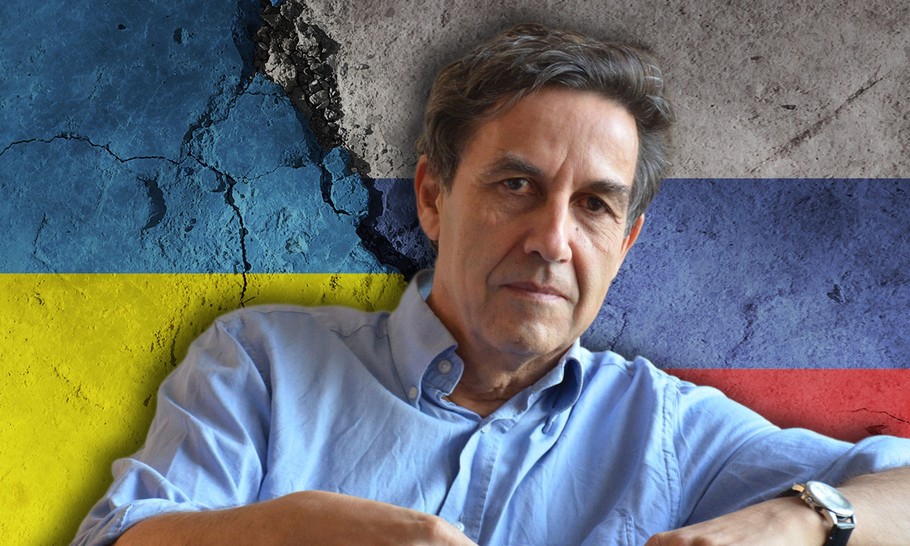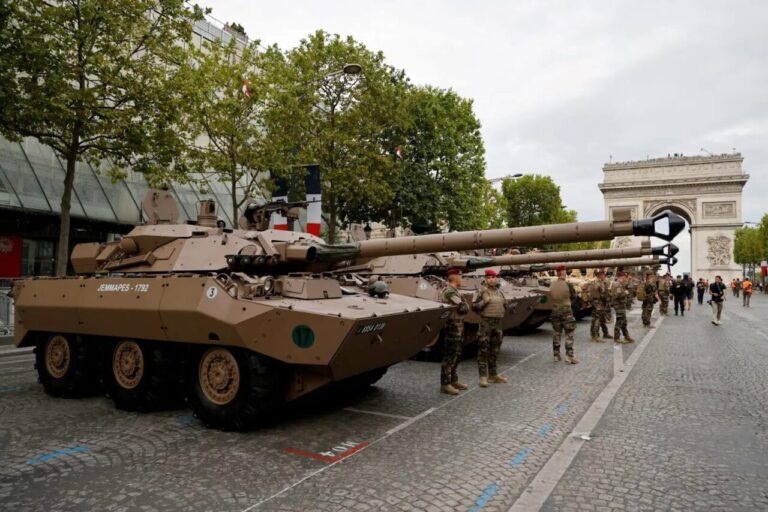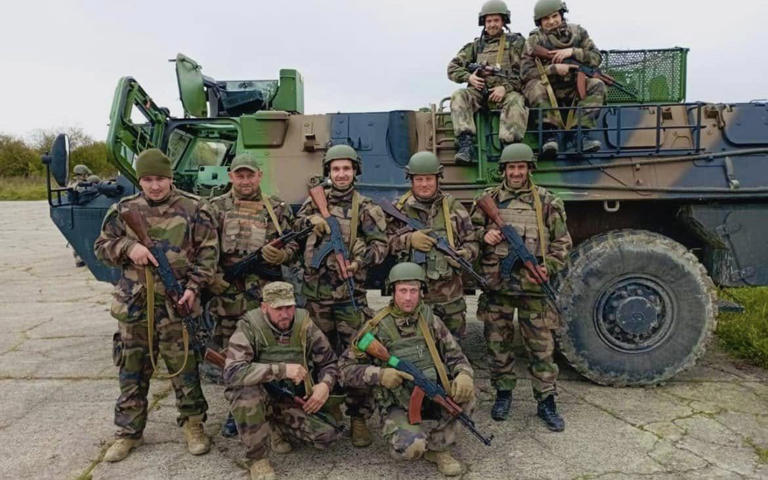Emmanuel Todd, now 72, is one of the few who predicted the end of the Soviet Union. In La chute finale: Essai sur la decomposition de la sphere soviétique (1976)[1] he analysed infant mortality, suicide rates, economic productivity and other indicators, and concluded that the USSR’s long stagnation would soon culminate in collapse.
Now, in La Défaite de l’Occident (Gallimard, 384 pp, published in January 2024), Todd applies the same forensic data analysis to Russia, Ukraine and the West. He concludes that Russia will succeed in its war aims and that the West is heading for defeat — less due to the war than as a result of its own “self-destruction”.
In France Todd’s book has received the media attention befitting a celebrity: long interviews on highbrow TV discussion programmes achieving hundreds of thousands of views. Though Le Monde dismissed him as “a prophet with closed eyes” who is “not the first to spread Kremlin propaganda in France”, Todd is adamant that he is no Putinophile. His is the analysis of a longue durée historian, who considers long-term trends with ideological detachment.
Why did Vladimir Putin choose February 2022 to launch his “special military operation”? Todd gives two answers. Firstly, Russia was ready. Since the 2014 sanctions in response to the Russian annexation of Crimea, Russia had been building up its military capability (including hypersonic missiles for which Nato has no match) and future-proofing its economy, developing the capacity for “great technical, economic and social flexibility: an adversary to be taken seriously”.
Secondly, based on birth rates and mobilisation cohorts, Todd concludes that Putin saw a five-year opening in which to defeat Ukraine and push back Nato. By 2027 the cohort of men eligible for military service will be too small. Russia invading Europe after conquering Ukraine is the stuff of “fantasy and propaganda”, Todd maintains. “The truth is that Russia, with a shrinking population and a territory of 17 million square kilometers, far from wanting to conquer new territories, wonders above all how she will continue to occupy those she already possesses.”
Demographic factors also impact Russia’s conduct of the war, Todd suggests. Initially a mere 120,000 Russian troops were deployed in Ukraine, a country of 600,000 km2. (Compare this with the USSR’s 1968 invasion of Czechoslovakia: 128,000 km2, 500,000 troops.) Contrary to the narrative favoured by many Western commentators, Russia’s current military strategy is not to hurl millions into the Stalingrad meat grinder. This war is being prosecuted slowly and methodically, to minimise losses. Todd points to the important role played in the conflict’s early stages by Chechen regiments and the Wagner militia, and to the mobilisations: partial, gradual, sparingly implemented. “Russia’s priority is not to conquer a maximum of territory but to lose a minimum of men.”
Putin’s continued popularity at home does not surprise Todd. Drawing on rates of suicide and alcohol-related deaths, Todd demonstrates the social stabilisation of the Putin era. A particularly significant indicator is infant mortality: 19 per thousand in 2000, 4.4 per thousand in 2020 – below the American rate of 5.4. And for most Russian citizens the standard of living has never been higher.
In Todd’s view the notion that Russia will be defeated by economic war is a delusion spread by the lawyers and accountants who have taken over Western policy-making and planning. Sanctions rely on global cooperation. But many countries, indifferent to this Russia-NATO confrontation and resenting the war’s costs imposed on them, do not want to play along, and assist in flows of essential equipment to Russia and hydrocarbons from it.
And the Russian economy has rebounded, despite (or because of?) the sanctions. Take wheat production: 37 million tonnes in 2012, 80 in 2020. (America’s fell from 65 million tonnes in 1980 to 47 in 2022.) If Russia and Belarus — whose combined GDP is 3.3% of the West’s (US, Canada, EU, UK, Japan, Korea) — can out-produce the West in arms production, then the whole notion of GDP must be up for reconsideration. The more significant consequence is that Ukraine is losing the war, due to shortages in weapons supply.
As for Ukraine, few anticipated that a “failed state” beset by corruption and in the grip of oligarchs would put up such a fight. “What nobody could have predicted is that it would find in the war a reason for existing, a justification for its own existence.” Todd presents a Ukraine irretrievably divided, with the Southern and Eastern regions having opted out of the Ukrainian national project long ago. The 2010 Presidential elections, he says, show this division with an “almost disconcerting simplicity”. Votes for the pro-Russian Viktor Yanukovych were 90.44%, 88.96% and 78.24% in Donetsk, Lugansk and Crimea, but only 8.60%, 7.92% and 7.02% in the Western provinces of Lviv, Ternopil and Ivano-Frankivsk.
For Todd the May 2014 Presidential elections — resulting in Petro Poroshenko’s election — were a turning point. In Donetsk turnout was a mere 15%; in Lugansk, 25%.[2] “These elections mark the moment when the [Russophone] regions disappeared from the Ukrainian political system.” This was “the end of a Ukrainian democracy, which in fact had never functioned” and “the true birth of the Ukrainian nation, through the alliance of the ultra-nationalism of the West and the anarcho-militarism of the Centre, against the Russophile part of the country.”
In the lead-up to February 2022, Russia made three demands on Ukraine: permanent retention of Crimea, protection for the Russian-speaking (or, as Todd puts it, Russian) populations of the Donbas, and neutrality. “A Ukrainian nation sure of its existence and of its destiny in Western Europe would have accepted these conditions”, Todd maintains; “it would even have got rid of the Donbas.” Recalling the amicable break-up of Czechoslovakia, Todd notes that this smaller polity could then have focussed on building itself as a truly Ukrainian nation-state, recognised by all.
Ukraine’s determination to reconquer the Donbas and reclaim Crimea is “a suicidal project”, Todd claims. It is trying “to maintain its sovereignty over the populations of another nation – a nation far more powerful than it is”. He continues: “The suicidal lack of realism in Kiev’s strategy suggests – paradoxically – a pathological Ukrainian attachment to Russia: a need for conflict which reveals an inability to separate from it.”
As for the West, Todd presents it as narcissistic and hubristically out of touch with the “Rest of the World”. Its “ideological solitude and ignorance of its own isolation” are the result of two decades of American-led globalisation and aggressive foreign policy. Backed up by an analysis of typical family structures and cultural and religious allegiances, Todd is not surprised that much of the Rest of the World is rooting for Russia, in its defiance of unipolar America-dominated hegemony and the “liberal international order”.
Russia is not the principal geopolitical problem, Todd suggests. “Too vast for a shrinking population, she would be incapable of taking control of the planet and has no desire whatsoever to do so […] Rather, it is a Western – and more specifically American – crisis, a terminal crisis, which is putting the planet’s equilibrium into peril.”
With President Macron now proposing to take the lead on European military support for Ukraine, Emmanuel Todd seems at odds with the French establishment. And there is much in his book to challenge the dominant narratives in our own politics and media.
Marc Polonsky is a retired partner of an international law firm. His practice focussed on investment in the Russian hydrocarbons and infrastructure sectors. All translations from the French are his.





